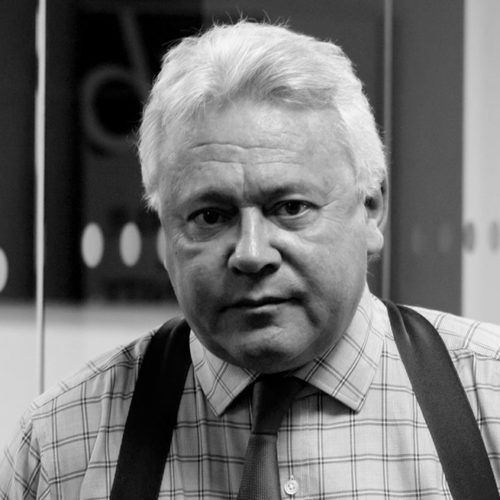-
Preserve a share of your property for the next generation... with a Property Protection Trust Will
Property Protection Trust Will
The Property Protection Trust (‘PPT’) Will is a form of Will for co-owners of property. It enables the surviving co-owner to occupy the property whilst ensuring that the share of the property belonging to the first co-owner to die is preserved for the next generation.
Each co-owner leaves their share of their property to the other, by way of a life interest trust and then outright to their children on the death of the surviving co-owner. In this way, the share of the property of the first co-owner to die is ring-fenced for the children. If the surviving co-owner goes into care, remarries or changes their will, the share of the property of the first co-owner to die will still go to the children upon the death of the surviving spouse.
Who is a Property Protection Trust Will suitable for?
Generally married or unmarried couples who have few assets other than their home and are concerned that the value of their children’s inheritance will be wiped out if the survivor of them has to go into care.
However, they also offer a practical solution to the problem faced by couples with few assets apart from their home where one, or both of the couple have children from a previous relationship. If the couple were simply to make Mirror Wills leaving everything to each other, with a gift of residue on second death to be divided between the various children, the survivor could make a new Will, to favour their own children at the expense of the deceased partner’s children. Or of course, the survivor could remarry and revoke his or her Will.
By making Property Protection Trust Wills, each partner could make their own children the eventual beneficiaries of their Property Protection Trust. This ensures they will inherit, no matter what the survivor might do in the future.
What is a life interest trust?
A trust whose income is paid to a particular beneficiary (the ‘life tenant’) during that beneficiary’s lifetime and whose capital passes to other beneficiaries on the death of the life tenant. In the case of the Property Protection Trust Will, the surviving co-owner is the life tenant and the children (usually) are the beneficiaries to whom the trust’s capital passes on the death of the life tenant.
What is ‘income’?
It depends on how the capital assets of the trust are held. It includes interest earned at a bank or building society, dividend payments on shares and rental payments on any rental property. Most importantly, it includes the right to occupy a property held by the trust rent-free, which is particularly relevant in the case of a Property Protection Trust Will, where the trust’s only asset will be the share of the property owned by the deceased co-owner.
When do the children receive their inheritance?
They inherit the value on the death of the life tenant (i.e., the second co-owner to die). If the property has been sold before the death of the surviving co-owner, then they inherit the value of the trust’s half of the sale proceeds at the date of the death of the surviving co-owner.
Principal Private Residence relief from Capital Gains Tax will be available on the trust’s half of the property by virtue of its occupation by the life tenant.
Do the children have to be the eventual beneficiaries of the Property Protection Trust?
No. The eventual beneficiaries could be grandchildren, other relatives, friends or even charities.
Can the life interest trust be brought to an end before the death of the surviving co-owner?
Yes, the trustees can bring the trust to an end if the property has been sold and they believe that the income generated by the sale proceeds exceeds what is required for the surviving co-owner’s needs. The trust’s assets could then be distributed to the children before the death of the surviving co-owner.
This provision is rarely used. However, it could be useful in circumstances where the property has been sold, the surviving co-owner is in care or reliant on benefits and any income from the trust only reduces those benefits pound for pound.
Should unmarried couples make Property Protection Trust Wills?
Yes, the Wills can be made by any co-owners of property.
Is the trust difficult and expensive to run?
No. As the trust's only asset is half a property and will not produce an income, there is no need for any tax returns to be submitted to HM Revenue and Customs (‘HMRC’). However, it might be that the trust, after the first death, needs to be registered at HMRC.
All the trustees need do, is check that the property is insured and being kept in good repair.
If the property is sold whilst the surviving co-owner is alive, then unless all the sale proceeds are being used to purchase a replacement property the trustees will need to inform HMRC that a trust has been formed as the trust now holds cash which will produce an income. However, as long as all the income is payable to the surviving co-owner, HMRC will not expect the trustees to file a trust tax return. All the income can be declared on the surviving co-owner’s tax return.
What formalities do the trustees need to follow on the death of the first co-owner to die?
Ideally, they should join in with the surviving co-owner in transferring the legal title to the property at the Land Registry into the names of the trustees and the surviving co-owner. This is a relatively simple process, and the transfer deed will record the basis upon which the trustees and the surviving co-owner hold the legal title to property i.e., half for the surviving co-owner, half in the Property Protection Trust.
However, this is not essential. When the joint tenancy was severed, a tenancy-in-common restriction will have been entered on the Land Register, which protects the trustees’ interest insofar as the surviving co-owner would be unable to sell the property on their own. The trustees could quite properly not alter the title deeds and simply receive their share of the sale proceeds on the death of the surviving co-owner (although the sale would be conducted by the surviving co-owner’s executors rather than the trustees - but of course, they may well be one and the same).
Who should be appointed trustees?
As long as there are at least two, it matters little as long as they are trusted by the client and willing to take on the appointment. The surviving co-owner and one or more adult children can be appointed, or other relatives or friends or professional trustees. Unlike some other Wills (e.g., Revocable Life Interest Trust Wills), the trustees have no discretion in the way they run the trust - they hold the trust assets for the surviving spouse for life, then for beneficiaries in defined shares.
What protection does the surviving co-owner have?
Complete protection, even if they are not one of the trustees (although most commonly they will be one of the trustees). The trustees are legally bound by the terms of the trust which are that
- the surviving co-owner can live at the property rent-free
- at the request of the surviving co-owner, the trustees must join in with the co-owner in selling the property and use the sale proceeds to purchase another property to which the same conditions attach
The surviving co-owner must insure the property and keep it in good repair.
How does the purchase of a replacement property work in practical terms?
It is quite straightforward. Take for example a property valued at £200,000. After the death of the first co-owner, it will be owned 50% by the surviving co-owner, and 50% by the trust. At the request of the surviving co-owner, the property will be sold and on completion of the sale (ignoring the costs of the sale which would be borne equally between the surviving co-owner and the trust), the surviving co-owner will have £100,000, the trust £100,000.
If the surviving co-owner has identified a replacement property for £100,000, then he or she has the choice of
- having the trust purchase the replacement property
- purchasing the replacement property themselves
- a combination of 1 and 2
In the case of 1, the surviving co-owner can live rent-free at the replacement property and has £100,000 to deal with as he or she wishes. On the death of the surviving co-owner, the replacement property can be sold, and the sale proceeds pass to the children.
In the case of 2, the trust has £100,000 in cash to invest. The trustees will decide the most appropriate form of investment (it may simply be an interest-bearing bank account) and pay any income to the surviving co-owner. On the death of the surviving co-owner, the £100,000 (or a greater or lesser sum depending on the performance of the chosen investment) will pass to the children.
In the case of 3, the trust will own a proportion of the replacement property and have cash to invest. On the death of the surviving co-owner, the children will receive the value of the proportion of the replacement property and the value of the cash invested.
It is worth bearing in mind that in the overwhelming majority of cases the surviving co-owner never wishes to leave his or her home and buy a replacement property.
What is the position if the surviving co-owner goes into care?
If the survivor goes into care, the value of the half-share of the property in the trust will not be taken into account for the purposes of means-testing. The value of the half-share belonging to the surviving co-owner will of course be considered, although it is valued on an open market value basis i.e., what a third party would pay for half a property when the other half is owned by a trust, which could be significantly less than 50% of the value of the property as a whole.
If, after the surviving co-owner goes into care, the property is sold, half the sale proceeds will pass to the trust. Any income produced is to be paid to the surviving co-owner.
On the death of the surviving co-owner, the trust’s half of the sale proceeds will pass to the children.
Is there a deliberate deprivation of assets?
No. It must be stressed that there is no deprivation of assets in a Property Protection Trust Will. A local authority will not raise any argument against a Property Protection Trust Will should the surviving co-owner go into care (in contrast to transactions where the person going into care has transferred the property into a trust during their lifetime).
A person is entitled to dispose of their estate on their death as they please. In a Property Protection Trust Will, a person is simply saying that they want the surviving co-owner to have the use of their property, but that the property is eventually to go to their children. A person has the right to do this, and it is not open to challenge by a third party.
What happens on the death of the surviving co-owner?
On the death of the surviving co-owner, the value of the half of the property owned by the trust as well as the value of surviving co-owner’s half will form part of the surviving co-owner’s estate for Inheritance Tax purposes.
The trustees will be responsible for any Inheritance Tax due on the assets in the trust. Any tax due is payable out of the trust’s assets and will be a proportion of the total Inheritance Tax due on the estate of the surviving co-owner.
If the co-owners were married or in a civil partnership, then on the death of the first co-owner his or her share of the property passing to trust attracted spouse exemption and therefore the transferable nil rate band should be available in full in the estate of the surviving co-owner.
The trustees will be best advised to liaise with the personal representatives of the surviving co-owner on the surviving co-owner’s death (they may well of course be one and the same) and to take professional advice before transferring the trust’s assets to the children.
It must, however, be noted that in many cases, Property Protection Trust Wills are made by couples who have no potential Inheritance Tax liability i.e., where the value of the property is less than the nil rate band for Inheritance Tax and where the co-owners have few assets other than the property.
Where there is a potential Inheritance Tax liability, clients might prefer to make an Asset Protection Trust or Revocable Life Interest Trust Wills, or in the case of unmarried couples, Unmarried Couples’ Inheritance Tax Saving Wills. Even if there is a potential Inheritance Tax liability, Property Protection Trust Wills are tax-efficient in that they preserve the transferable nil rate band and the transferable residence nil rate band.
Are there any drawbacks to a Property Protection Trust Wills?
There are surprisingly few, considering the extensive potential benefits.
The surviving co-owner may find their options limited when it comes to equity release providers. The co-owners could of course enter into an equity release scheme whilst they were both alive as anything in their Wills only comes into effect on death.
The surviving co-owner could not sell the property and spend the entire sale proceeds - they could only spend their half.
Of course, the fact that the capital represented by the deceased co-owner’s share of the property is held in trust means it is not available to contribute towards the surviving co-owners care fees. Whilst also being the main benefit of the Property Protection Trust, this could be perceived as a disadvantage by some clients who wish to fund a high quality of care from the value tied up in their home. In this circumstance, the Property Protection Trust is not the right option.
Other than that, it is hard to see how a surviving co-owner could be disadvantaged because they were only left a life interest in the deceased co-owner’s share of the property as opposed to having been left it outright. The surviving co-owner continues to live in the property as if he or she owned it outright, he or she can sell and buy a replacement property, and the trust has no or minimal ongoing costs.
Let our family take care of yours...
Patience and Understanding
Mr Morris
Mr Morris
Clear, Friendly, Efficient Advise
Mrs Dyett & Mr Howard
Mrs Dyett & Mr Howard
Excellent service throughout, friendly and professional
Miss Arblaster
Miss Arblaster
Wonderful, Chatty and Helpful Staff
Mr & Mrs Jones
Mr & Mrs Jones
Friendly Staff
Ms Mason
Ms Mason
A Country Mile
Ms Hooley
Ms Hooley
Approachable, Friendly & Professional
Mrs Lovatt
Mrs Lovatt
Clear & Understandable Explanation
Mr & Mrs Ellis
Mr & Mrs Ellis
Very friendly, but still professional
Ms Walker & Mr Birchall
Ms Walker & Mr Birchall
Thank you
Mr Handley
Mr Handley
Friendly and Pleasant Staff
Mr Osborne
Mr Osborne
Compassionate
Mr Stubbs
Mr Stubbs
Friendly & Approachable
Mrs Misiukanis
Mrs Misiukanis
Friendly, Professional & Really Listened
Mrs Davies
Mrs Davies
Friendly and Clear
Ms Fairclough
Ms Fairclough
Excellent Service
Mr Johnson
Mr Johnson
Friendly and Professional
Mr Slater
Mr Slater
Friendly, Courteous and Understanding
Ms Thwaite
Ms Thwaite
Friendly, Efficient & Clear
Mrs Dunne
Mrs Dunne
Incredibly Helpful and Understanding
Miss Pearson
Miss Pearson
Helpful and Friendly
Ms Webster
Ms Webster
Everything went smoothly
Mr & Mrs Horsfield
Mr & Mrs Horsfield
Excellent Service Throughout
Mr Beetenson
Mr Beetenson
Kind and helpful
Mrs Woolley
Mrs Woolley
Easy to understand
Mrs Coates
Mrs Coates
Very Happy
Ms Pagan
Ms Pagan
Always Impressed
Miss Cassy
Miss Cassy
Excellent Company and Staff
Ms Vivian
Ms Vivian
Efficient and clear
Mr Ward
Mr Ward
Highly Satisfied
Mr Allen
Mr Allen
Working with a smile
Mrs Little
Mrs Little
Making my Will was made so easy
Mrs Fergus
Mrs Fergus
Excellent quality of service
Mr Stones
Mr Stones
Impressive All-Round Service
Mr & Mrs Wragg
Mr & Mrs Wragg
Pleasant and Professional Staff
Mrs Ledger
Mrs Ledger
So Good
Mr Booler
Mr Booler
Friendly, Competent and Totally Professional
Mr & Mrs Greensides
Mr & Mrs Greensides
I was Listened to Carefully
Mrs Booth
Mrs Booth
Professional
Mr & Mrs Lindley
Mr & Mrs Lindley
Excellent and very informative
Mrs Gill
Mrs Gill
Very patient
Mrs Greaves
Mrs Greaves
Would be Happy to Recommend
Mrs Riley
Mrs Riley
Excellent customer service, would recommend without hesitation
Mr Gower
Mr Gower
Approachable and Knowledgeable
Mrs Brook
Mrs Brook
Clear, Professional, Friendly Service
Mr & Mrs Spencer
Mr & Mrs Spencer
First Class as Always
Mr & Mrs Swift
Mr & Mrs Swift
A polite and caring service all the way through, from receptionist to solicitor
Mr & Mrs Williams
Mr & Mrs Williams
Excellent Advice
Mrs Cheney
Mrs Cheney
Made a Difficult Task Easy
Ms Cooper
Ms Cooper
Understanding, Helpful & Efficient
Ms Hood
Ms Hood
Kind and Understanding
Mrs Senior
Mrs Senior
Polite and respectful
Mr Rains
Mr Rains








